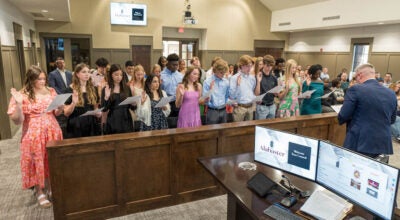Pelham man pleads guilty to scam with daughter
Published 3:24 pm Wednesday, August 8, 2012
FROM STAFF REPORTS
A Pelham man pleaded guilty in federal court on Aug. 8 to money laundering in a scheme with his daughter that collected more than $400,000 for expenses of a lawsuit that never existed, according to prosecutors.
Paul Haskell Lane Jr., 69, entered his plea before U.S. District Judge C. Lynwood Smith Jr. Lane is scheduled for sentencing Nov. 14.
“Today’s guilty plea represents the culmination of years of hard work by my office and our federal and state partners,” said U.S. Attorney Joyce White Vance. “Tenacious work by the IRS, FBI, and Alabama Securities Commission made it possible for us to secure this guilty plea.”
“Mr. Lane exploited his family, friends and neighbors by perpetrating a scheme that was based entirely on lies,” said IRS Criminal Investigation Special Agent in Charge Donald Yaden. “The plea today is Mr. Lane’s opportunity to admit to the deception and face the consequences of his actions.”
Lane’s guilty plea caps a six-year investigation and prosecution effort by federal and state authorities. In late 2009, Lane and his daughter, Katherine Hope Lane, 28, were separately indicted for wire fraud, mail fraud and money laundering for their roles in a plan to get people in other states to wire money to Lane’s bank account. Those who sent money were led to believe it would go toward costs for a personal-injury lawsuit filed by the Lane family after Katherine Lane suffered a brutal assault at work.
The Lanes represented that proceeds from the lawsuit would be used to repay people who donated. Most who provided money also believed that they would get back from the Lanes more money than they sent. Katherine Lane, however, was never assaulted and the Lanes had never filed a lawsuit.
Over the course of several years, Lane took the money that was wired into his account and gave it to his daughter. He acknowledged those actions in his money laundering plea and agreed to pay $343,900 in restitution, which is expected to go toward repaying those who sent money.









